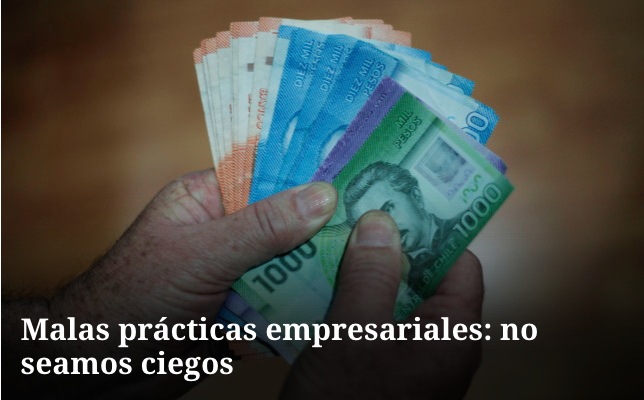
This article first appeared in El Libero on December 05, 2016
We are all responsible here. The only way to be able to combat this type of crime is to be concerned, not to be blind, and to feel that everyone has a share of responsibility in preventing this type of crime from happening.
Alberto Chang’s defense says that he invested in real businesses, and he was just unlucky. But as the judicial and media investigation progresses, we have all been surprised to learn the truth about the Arcano Group. And although the supposed Stanford University graduate did indeed deceive many, I think we need to question a few things a little more so that we can learn lessons from this story.
While everybody talks about pyramid schemes and the media explain didactically how they work, one of the ideas installed by the Grupo Arcano case -and also by the AC Inversions scam- is that “supernormal profits” do not exist.
In my opinion, this assertion is wrong. We can indeed invest in start-up ventures and give the “cat’s paw”. But when the market internalizes this information, these businesses no longer yield spectacular profits. This translates into the share price and therefore the window for higher returns is short. That is why investing in Uber today no longer produces “supernormal profits”.
But do you know which businesses have “supernormal profits” for the long term: illegal ones. Today, the most profitable transactions in the world are cybercrime, drug trafficking, human trafficking, arms trafficking, and I could go on and on.
And here we can hide an extremely dangerous element. As we do not have a culture of “due diligence” of institutions, this lack of oversight could trigger cases such as those of Arcano to be more than a simple swindle.
Indeed, we could be facing groups that invest in the most profitable businesses in the world, such as the crimes mentioned above, without declaring anything to anyone and without anyone asking them. And in such a scenario, we would no longer be talking about simple swindles, but about complicity in illicit markets.
Another idea that is repeated, both with Arcano and AC Inversions, is that we are facing cases where everyone is saying “I was deceived”. But, what was the responsibility of each one, both executives and investors, to see how the business was being run?
If we compare this case with the episodes of collusion and “bad practices” in which well-known companies in the country have incurred, the social phenomenon I am describing is not very different: it all comes back to the excessive focus on the result, without thinking about the process.
In all these cases of irregularities, we have executives agreeing to meet the objectives imposed by the company, without thinking about “how I get” to those goals. We also find investors who give their wealth to these groups, only concerned about profits and without even questioning how these firms reach the promised profitability.
We are all responsible here. The only way to combat this type of crime is to be concerned, not to be blind, and to feel that everyone has a share of responsibility in preventing this type of crime from occurring.
By Susana Sierra










